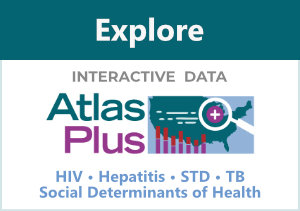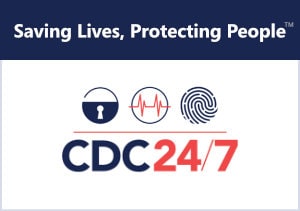Clarification on use of expedited partner therapy
Dear Colleagues,
May 13, 2020
The Division of STD Prevention issued a Dear Colleague Letter (DCL) on April 6, 2020pdf icon to offer guidance about effective STD prevention and care when facility-based services and in-person patient-clinician contact is limited during COVID-19. This letter offers updates and clarification of that guidance, specifically as relates to the use of expedited partner therapy (EPT) in this setting.
Where legal, EPT is the clinical practice of treating the sex partners of persons to reduce reinfections and subsequent adverse health outcomes by providing medications or prescriptions to the patient to then provide to their partners. EPT is an important harm reduction strategy in the STD control armamentarium but is reserved for situations where a partner would not otherwise receive timely treatment. EPT has been studied and shown to be safe and effective for gonorrhea and chlamydia.
The April 6, 2020 DCL specifically addressed the management of persons with STI syndromes associated with gonorrhea and chlamydial infections like urethritis and proctitis for settings where in-person clinical evaluation is not feasible, and EPT to cover gonorrhea and chlamydia for partners who are contacts to individuals with these syndromes. Local laws or other regulations should be taken to account when making decisions to use EPT for these syndromes.
There are no data on the use of EPT for sex partners of persons diagnosed with syphilis to prevent adverse health outcomes. Standard of care for any sex partner of persons diagnosed with syphilis before COVID has been to have the contact evaluated, tested and treated in a clinical setting. Syphilis is a systemic infection with unique features that make even in-person evaluation challenging. Without evaluation by a healthcare provider, whether a patient’s contacts have early versus late syphilis, signs or symptoms of complications (i.e., neurologic, ocular or otic symptoms), or if they are pregnant cannot be determined. Laboratory tests to confirm a syphilis diagnosis and to follow response to therapy are essential. CDC therefore does not currently recommend the use of EPT for the management of sex partners of individuals diagnosed with syphilis.
For jurisdictions unable to safely accommodate in-person visits, telehealth options for syphilis contacts should be maximized. This may require partnerships with other providers, laboratories and/or pharmacies.
Regarding the drug shortage concerns mentioned in the earlier DCL, we have received a few reports of challenges with purchasing azithromycin, cefixime, and gentamicin in some clinic settings. Azithromycin is currently on the FDA Drug Shortage list. There is limited product available. Updates on product availability can be found on the FDA shortage websiteexternal icon. In our communications with FDA, some manufacturers of cefixime and gentamicin products are experiencing short term supply issues. However, product is available in the nationwide supply chain and the other manufacturers of cefixime and gentamicin continue to cover the market. There may still be problems within some local distribution chains that are impacting local supply. If you are experiencing any medication shortages, please contact your DSTDP prevention specialist.
As mentioned previously, if STD clinic services have not been disrupted or as the clinical environment normalizes, providers should continue to follow recommendations in the 2015 STD Treatment Guidelines and the Recommendations for Providing Quality STD Clinical Services, 2020 with appropriate precautions to prevent COVID-19 transmission to patients and providers (see CDC Guidance for Healthcare Providers).
We, at CDC, appreciate your hard work to provide care and continue to combat STDs and HIV during this unprecedented time. There is no doubt that as we face new challenges in the field, more questions will arise. Please feel free to reach out to us with questions and stay safe.
Sincerely,
/Laura Hinkle Bachmann/
Laura Hinkle Bachmann, MD, MPH
Chief Medical Officer
Clinical Team Lead, Program Development and Quality Improvement Branch
Division of STD Prevention
National Center for HIV/AIDs, Viral Hepatitis, STD and TB Prevention
Centers for Disease Control and Prevention
CC:
Phoebe Thorpe, MD, MPH
Gail Bolan, MD
Jonathan Mermin, MD, MPH


